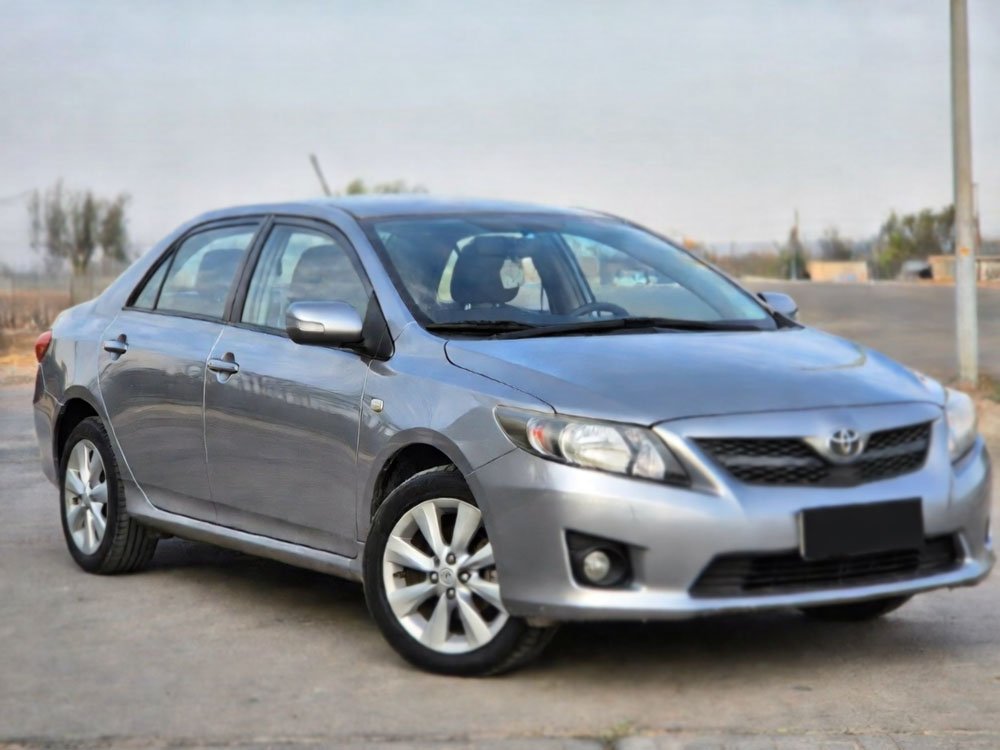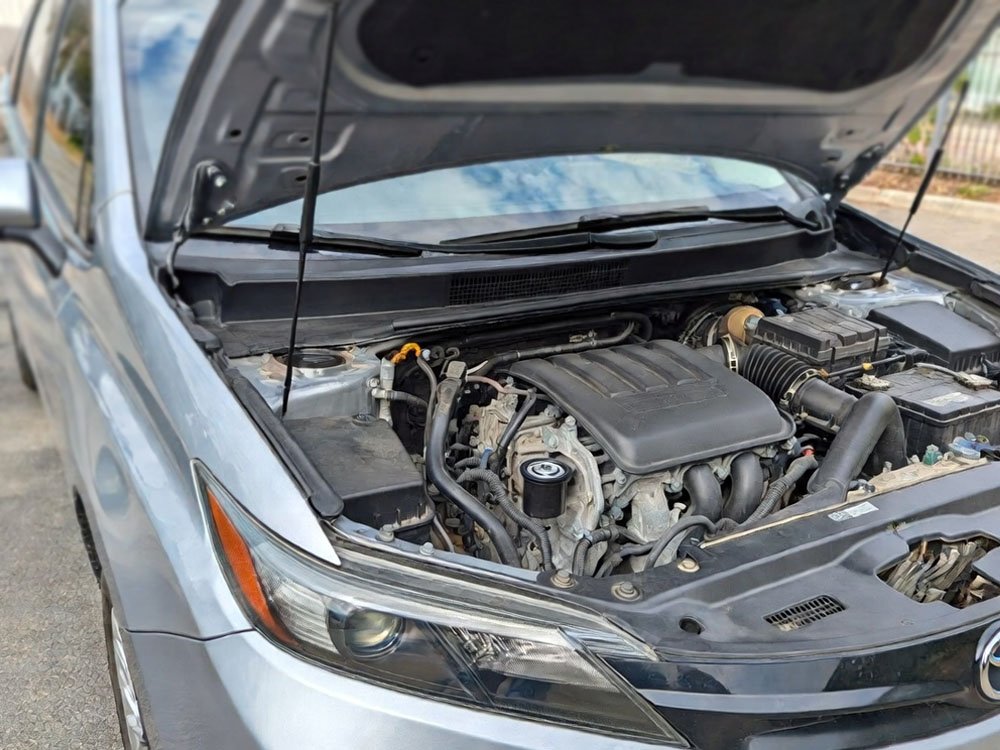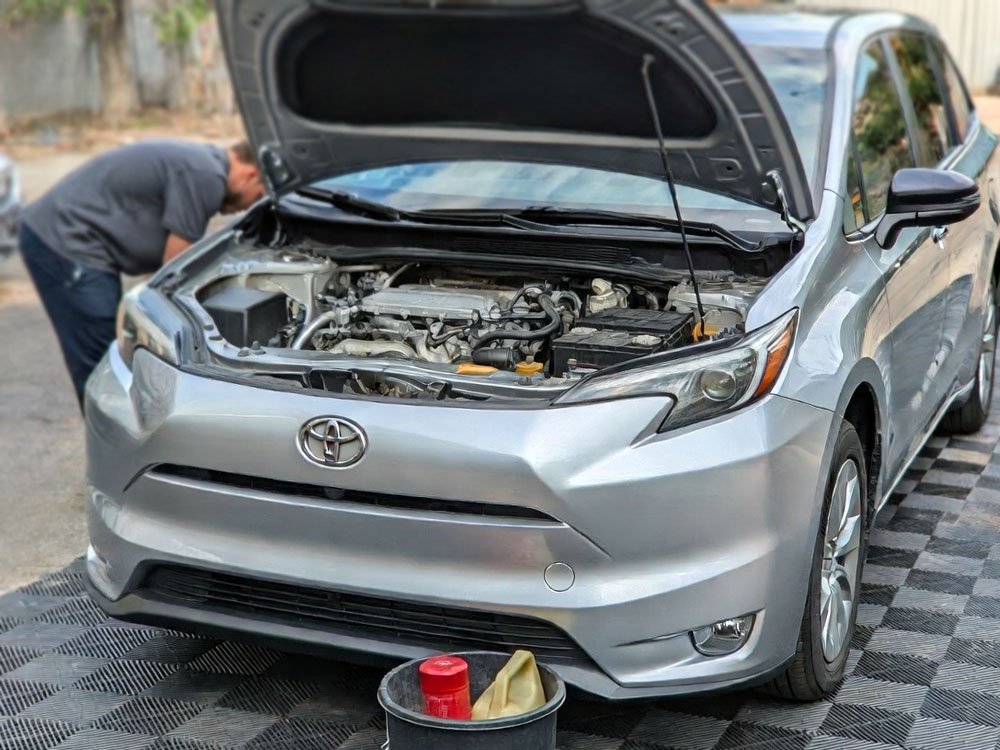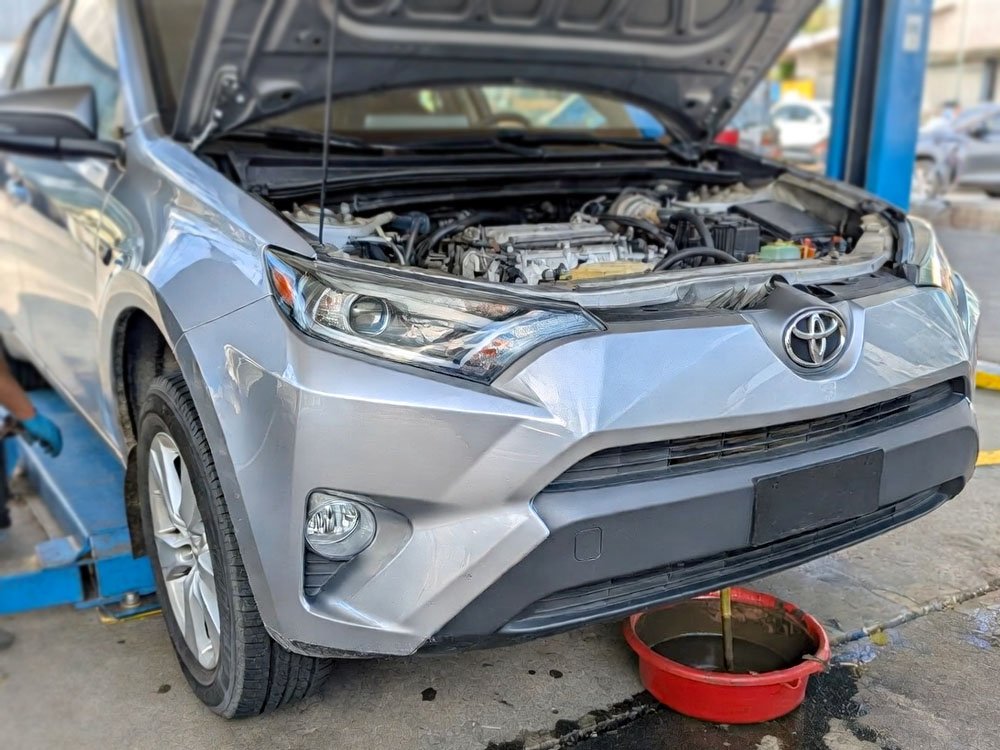As an Amazon Associate, I earn from qualifying purchases at no extra cost to you.
Humming Noise In Car Getting Louder With Speed: Causes and Fixes
So, you're driving along and all of a sudden, that odd humming noise starts to get louder the faster you go. Annoying, right? You can feel it in your ears, and maybe you even start to wonder if your car is about to break down. Don’t worry; you're not alone.
A humming noise that increases with speed is one of the more common problems car owners face, and it's something you definitely don't want to ignore. But what's causing it? Is it a simple fix, or do you need to worry about serious repairs?
Let's break it down in this article, so you can get back to enjoying your ride without the constant humming. We're diving into the causes, the connection to your car's speed, how to diagnose it, and, most importantly, how to fix it.
Common Causes of Humming Noise in Cars: What You Need to Know
When you hear a humming noise in your car, it's easy to assume it's something pretty serious, but that's not always the case. In fact, there are a number of common causes behind that hum, and while some are nothing to worry about, others might need your attention sooner rather than later. So, let's start by taking a look at what might be causing that humming sound to appear in the first place.
Worn-Out Tires and Wheel Bearings
One of the most common causes of humming noises, especially ones that get louder with speed, are worn-out tires or bad wheel bearings. If your tires are old, unevenly worn, or not properly balanced, they can create a humming sound as they spin faster. This is especially noticeable at higher speeds when the friction between the tires and the road increases.
Wheel bearings are another culprit in this category. If they are damaged or worn out, they can cause a noticeable humming or grinding noise that gets louder the faster you go. The noise often starts subtle but gradually gets worse, particularly as you increase your speed. If the sound changes depending on which direction you turn, it's a good indication that your wheel bearings may need to be replaced.
Issues with the Differential or Transmission
If your car has a rear-wheel drive or all-wheel drive system, the humming noise could be coming from the differential. The differential is the part of your car that distributes power to the wheels, and when it's not functioning properly, it can cause a loud humming sound, especially at higher speeds.
Similarly, the transmission could be to blame for the noise. If the transmission is having trouble, you might hear a hum that gets louder as you accelerate. It's important to note that a malfunctioning transmission can lead to much bigger issues, so if you suspect the transmission is causing the noise, it's time to have it checked out by a professional.
Alignment or Suspension Problems
Your car's alignment and suspension play a big role in how smoothly it drives, and if there's an issue with either of these, you might start to hear a humming sound. Poor alignment can cause your tires to wear unevenly, which in turn can lead to the humming noise. Suspension problems can cause similar issues because the components responsible for keeping the car stable may not be functioning properly. Both alignment and suspension issues can result in a hum that increases as you speed up.
Aerodynamic Factors
Sometimes, the cause of a humming noise in a car is not mechanical at all. It could be something as simple as the way the air flows over your car's body. If you have aftermarket parts on your car, such as a spoiler or side skirts, or if something is hanging loosely underneath the car, it can disrupt the airflow and create a hum or whistle as you drive. This is more likely to happen at higher speeds when the airflow becomes more pronounced.
Brake System Issues
Though less common, sometimes issues with the brake system can cause a humming sound. If the brake pads are worn down unevenly or if there's a problem with the brake calipers, it can create a noise that gets louder as you accelerate. If you notice that the humming noise is accompanied by vibrations or difficulty stopping, it’s crucial to address this issue immediately, as it could be a sign of more serious brake problems.
How Speed Affects the Humming Sound: Exploring the Connection
You might be wondering why the humming sound gets louder the faster you drive. What's the connection between your car's speed and the noise you're hearing? Let's break it down.
The Role of Friction and Contact Points
The faster you go, the more friction is created between various moving parts of your car, such as the tires, wheels, and drivetrain components. This friction is what makes the humming sound louder, especially if there’s a problem with these parts. For example, worn-out tires or bad wheel bearings will create more resistance at higher speeds, leading to an increase in noise. The same goes for a malfunctioning differential or transmission.
Additionally, as you increase your speed, the forces acting on the suspension and alignment of your car become more intense. If these components are out of whack, the noise will become more noticeable at higher speeds because they're under more pressure. Essentially, the faster you go, the more the car's components are pushed to their limits, which can exacerbate any existing issues.
Aerodynamic Effects at Higher Speeds
At lower speeds, the aerodynamic effects on your car are minimal. But once you reach higher speeds, the flow of air around your car becomes much more significant. If there's anything on your car that disrupts this airflow, such as loose trim pieces, spoilers, or even a roof rack, it can create a loud humming sound. The faster you go, the more forcefully the air hits these objects, amplifying the sound.
Mechanical Strain as Speed Increases
The mechanical components of your car, such as the differential, transmission, and even the engine, are under more strain as you increase speed. This strain can make any issues with these parts more noticeable. For example, if your transmission is failing or your differential is having trouble, the strain of driving at higher speeds will cause the noise to get louder. These components are designed to handle high speeds, but if there's a problem, you'll hear it more clearly when you’re moving faster.
How to Diagnose and Fix the Humming Noise in Your Car
If you're dealing with a humming noise that gets louder with speed, the best thing you can do is diagnose the problem as soon as possible. Ignoring it could lead to bigger, more expensive issues down the road. So, how do you figure out what's causing the hum? Let's go through the steps.
Step 1: Listen Carefully to the Noise
The first thing you need to do is really pay attention to the noise. What does it sound like? Is it a smooth hum, or is it more of a grinding noise? Does it get louder when you speed up, or does it stay the same? Where is the sound coming from? Does it change if you turn the steering wheel or change lanes?
Listening carefully to the humming noise is the best way to start diagnosing the problem. For example, if the noise seems to come from the front of the car and gets louder when you turn, it's more likely to be something related to your tires or wheel bearings. If it seems to come from the back, it might have something to do with the differential. The more details you can gather about when and where the noise occurs, the easier it will be to figure out the cause.
Step 2: Inspect the Tires and Wheel Bearings
One of the first places to check is your tires. Tires are one of the most common sources of humming sounds in cars, and it's pretty easy to see if they're the issue. Start by looking at the tread of your tires. Are they worn unevenly? If one side of the tire looks more worn than the other, it could indicate an alignment problem or that the suspension is off balance. Uneven wear can create a humming sound, especially as you speed up.
If the tires look okay, check to see if they're properly inflated. Under-inflated tires can create resistance as they roll on the road, causing a humming or buzzing noise. You can easily check the tire pressure using a tire pressure gauge, which is available at most auto parts stores. Make sure all four tires have the correct pressure as listed in your car's manual.
Next, check the wheel bearings. This is a little trickier because you can't always see or hear problems with wheel bearings from the outside. A wheel bearing is a part inside the wheel that helps the wheel spin smoothly. If it's worn or damaged, it can cause a humming noise that gets louder as you drive faster. To check the wheel bearings, jack up the car and try spinning the wheel by hand. If you feel any roughness or hear any grinding sounds, it's a sign that the bearings might be damaged and need to be replaced. If you're not sure how to do this, it's best to take the car to a mechanic.
Step 3: Check for Alignment and Suspension Problems
If your tires and wheel bearings seem fine, the next thing to look at is the alignment and suspension. Poor alignment or suspension problems can cause the car to vibrate or make humming noises as it moves. For example, if your car pulls to one side while you're driving or the steering feels a bit off, it's a good sign that your wheels may not be properly aligned.
To check the alignment, take your car to a flat, smooth surface and drive in a straight line. If the car pulls to one side without you steering it, then it's likely that the alignment is off. You can also visually check the tires to see if they're leaning inwards or outwards more than they should.
Suspension issues, such as worn-out shocks or struts, can also cause the car to make noise. These parts are responsible for keeping your car's ride smooth and stable. If the suspension is worn out, you might feel bumpy rides or notice that the car feels wobbly at high speeds. Inspecting the suspension can be difficult for a beginner, so it might be best to have a mechanic do this for you if you’re unsure.
Step 4: Inspect the Differential and Transmission
If you're still hearing the humming noise and everything else seems fine, the next thing to check is the differential and transmission. These are important parts of your car's drivetrain that help transfer power from the engine to the wheels. If either of these parts is malfunctioning, it can cause a loud humming sound, especially at higher speeds.
To check the differential, you'll need to ensure that the fluid levels are correct. The differential needs special fluid to keep all the gears inside it lubricated. If the fluid is low or old, it can cause friction, leading to the humming noise. To check the fluid, consult your car's manual to find where the differential fluid cap is located. If you notice that the fluid is low, top it up with the recommended type of fluid for your vehicle.
For the transmission, you should also check the fluid levels. Low transmission fluid can cause the transmission to make a noise as it struggles to shift gears properly. If the fluid levels are good, but the noise still persists, it's possible that the transmission is damaged. This is a more serious issue and may require professional help to diagnose and repair.
Step 5: Look for Aerodynamic Issues
Sometimes the cause of a humming noise is not mechanical at all—it's actually related to the way air flows around your car. If you've added any aftermarket parts to your car, like a spoiler, roof rack, or side skirts, these could be disrupting the airflow. This can cause air to whistle or hum as it passes over or under the car at higher speeds.
To check for aerodynamic issues, take a close look at your car's exterior. Are there any parts that are loose or not properly installed? If something like a trim piece is hanging off or not securely attached, it could be causing the noise. Additionally, things like roof racks or bike carriers can create additional drag on the car, especially at higher speeds.
Even small things, like a dirty air vent or a small crack in the bodywork, can affect the airflow and lead to a humming noise. If you find anything unusual, try fixing it or removing it temporarily to see if the noise stops. Sometimes the solution is as simple as tightening a bolt or securing a part that has come loose.
Step 6: Get Professional Help If Needed
After you've inspected all of the above, if you still can't find the cause of the humming noise, it might be time to seek professional help. While some problems, like worn tires or a loose part, are easy to fix yourself, others may require special tools or expertise. If you suspect the noise is coming from something like the transmission or differential, it's a good idea to take your car to a mechanic for a thorough inspection.
A professional mechanic has the knowledge and experience to properly diagnose the problem. They'll also have access to the right tools to fix more complicated issues. Even if you've done your best to troubleshoot the problem yourself, a mechanic can give you peace of mind and ensure that everything is working correctly before you get back on the road.
By carefully following these steps, you can diagnose the cause of the humming noise in your car and decide if it's something you can fix yourself or if you need help from a professional. Either way, paying attention to the noise and addressing it quickly will help keep your car running smoothly and safely.
I hope this article has helped you understand why your car might be making that annoying humming noise that gets louder with speed. Whether it's something as simple as worn-out tires or as serious as a malfunctioning differential, the important thing is that you can diagnose and address the issue before it becomes a bigger problem. So, take your time, inspect your car, and don't hesitate to get professional help if needed. Drive safe and smooth from here on out!
Frequently Asked Questions
Is it safe to drive with a humming noise in the car?
If the humming noise is caused by something like worn tires or wheel bearings, it may be safe to continue driving, but it's important to address the issue soon to avoid further damage. If the noise is coming from the differential or transmission, it's best to get the car checked out as soon as possible.
Can a humming noise indicate brake issues?
Yes, sometimes a humming or grinding noise could be caused by worn-out brake pads or issues with the brake calipers. If the sound is accompanied by vibrations or difficulty stopping, it's important to address this immediately.
Do I need to replace my tires if they're causing a humming noise?
If your tires are worn out or unevenly worn, replacing them is usually the best solution. Make sure your new tires are balanced and aligned properly to avoid future issues.
Is the humming noise from my car related to the air conditioning?
While it's less likely, it's possible that the humming sound is coming from the air conditioning system, especially if the noise only happens when the AC is on. If this is the case, it could be a sign of a problem with the blower motor or air ducts.
Is it possible for a humming noise to be caused by something loose on my car?
Yes, loose parts or accessories, such as trim pieces, spoilers, or roof racks, can disrupt the airflow around your car, causing a humming sound. Check your car carefully for anything that could be rattling or loose.
Can wheel alignment issues cause a humming noise?
Yes, poor wheel alignment can cause uneven tire wear, which in turn can lead to a humming noise. If your car pulls to one side or the steering feels off, it's worth getting your alignment checked.
Do I need to take my car to a mechanic for a humming noise?
If the noise is persistent or seems to be coming from critical parts like the transmission or differential, it's best to take your car to a mechanic for a thorough inspection. They can pinpoint the issue and recommend the appropriate fix.
Is a humming noise from the car always a sign of something serious?
Not always. Often, a humming noise is caused by something relatively simple, like worn tires or an alignment issue. However, if the noise increases over time or is accompanied by other symptoms like vibrations, it could indicate a more serious problem.











